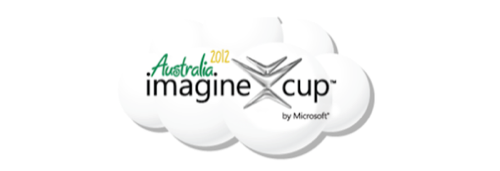
The 10th annual student software contest, Microsoft’s Imagine Cup, is wrapping up in Sydney, Australia, and there are some important lessons that all entrepreneurs, young and old, can glean from the process. The contest challenges hundreds of thousands of people – mostly college students – from around the world to come up with a new idea, code it using various Microsoft products, and pitch it in a series of judging rounds that culminates with winners in several categories, including software and game design.
I was fortunate to be selected as one of this year’s judges for the contest. I got to see more than a dozen of the teams as part of the process and meet dozens more students during my stay in Sydney. The teams that advanced from round to round all had several things in common:
- Basic English communication skills. The contest was conducted in English. Given that many of the contestants didn’t speak English as their native language, this presented a challenge, and some of the teams relied on their best English speakers to be presenters and translate the questions from the judges. If the developer wasn’t fluent in English, some things got lost in the translation. If founders have an accent or aren’t comfortable with speaking in front of an audience, they should make sure to get lots of practice.
- Great presentation skills. Each team had just minutes to present its slides and demonstrate its solution. The better teams structured their presentation to match the judging requirements and also rehearsed their speeches to make sure they could deliver them in the allotted time. On the other end of the spectrum, some presenters sat in their chairs when addressing the judges. Entrepreneurs who aren’t polished presenters should go to their local Toastmasters branch or take a course in public speaking at a community college.
- They got to the point, quickly. Some of the losing teams took too long to set up their solution, focusing on matters that weren’t germane to the judging criteria. Founders need to be ruthless when trimming slide decks to make them as crisp as possible. When you are pitching an investor or potential partner, make sure you hone your own presentations so that they are succinct and on-point. Think Twitter: If you can’t formulate your message in less than 140 characters, work on another message.
- Solid video production skills. Video is very compelling and should be a part of any startup’s marketing effort. But a bad video is worse than no video at all. The first judging round had each team submit a short video that explained their solution. Some of the videos were very slick – almost too slick: They didn’t really explain the actual solution and focused on pretty images and annoying background music that drowned out the narration. Don’t get so enamored with video production that you lose sight of what you are trying to accomplish.
- They understood how to put together code. Some of the teams put an architecture diagram in their slide decks that didn’t make any sense whatsoever. Others took the time to show their code when questioned by the judges, and prove that their demos weren’t all smoke and mirrors. Don’t be afraid to dive in if your audience wants to know the bits and the bytes.
- They knew what business they were in. One team that didn’t make it into the finals couldn’t decide what business they were in: Were they going to sell their solution directly or use a reseller? Another team didn’t understand what a balance sheet was or how they were going to make money. I have seen lots of entrepreneurs who make these same mistakes. Make sure to clearly state your financial assumptions and what you are asking from your audience.
- They had fewer moving parts. Many of the teams put together some very elaborate demonstration systems involving a laptop PC, a Kinect motion sensor, a mobile phone and code running in the cloud, which may be intellectually interesting but also quite fragile if something breaks or if Internet access goes wonky. Resist the urge to add nonessential pieces and follow Thoreau’s advice to simplify your solution.
Watching all these brainy kids was a real treat and a great learning experience in itself. Here is a video of the Singapore team that is working on a way to help people with dementia:
Disclosure: As a judge, my travel expenses to the event were covered by Microsoft.

















